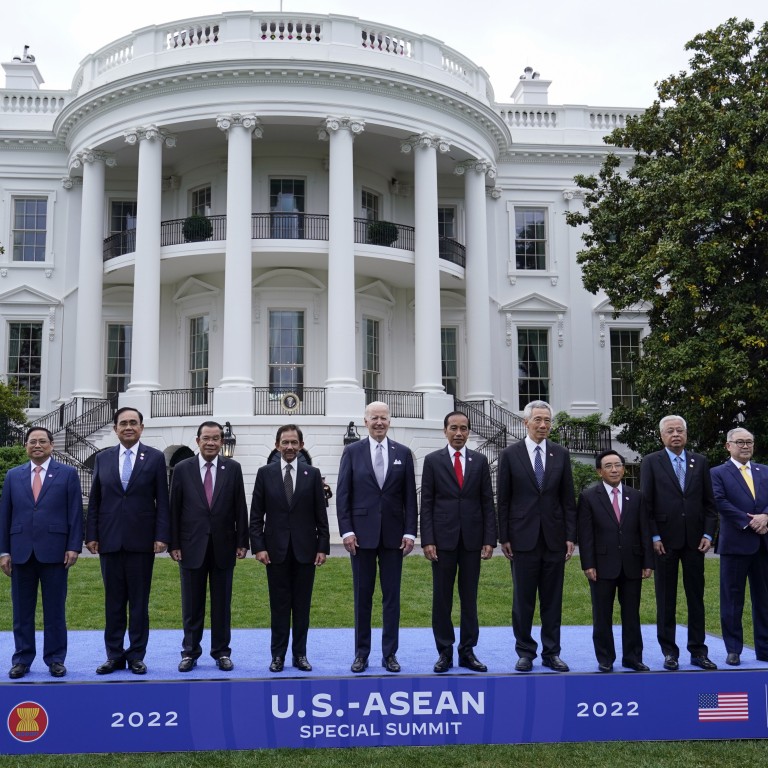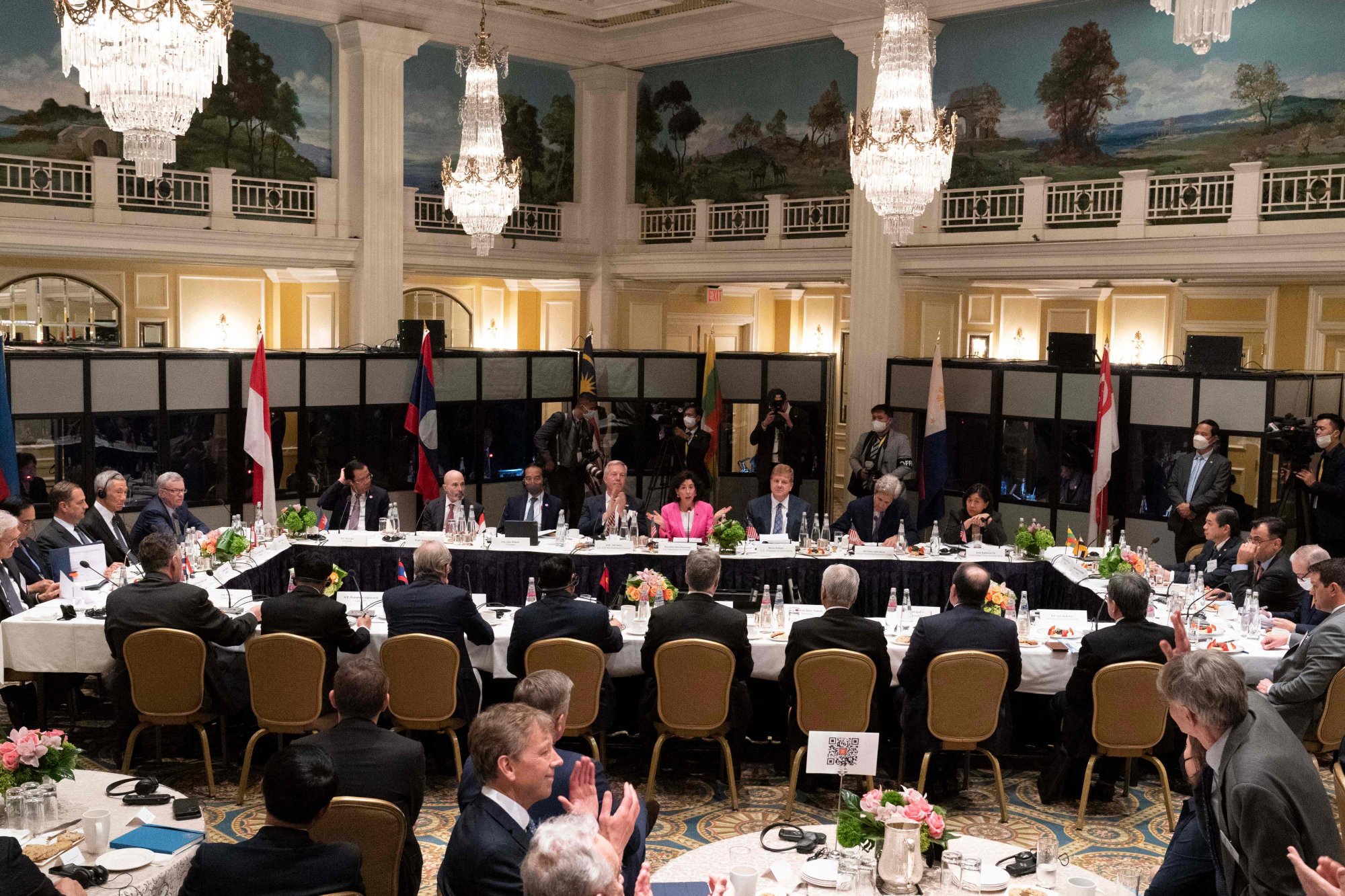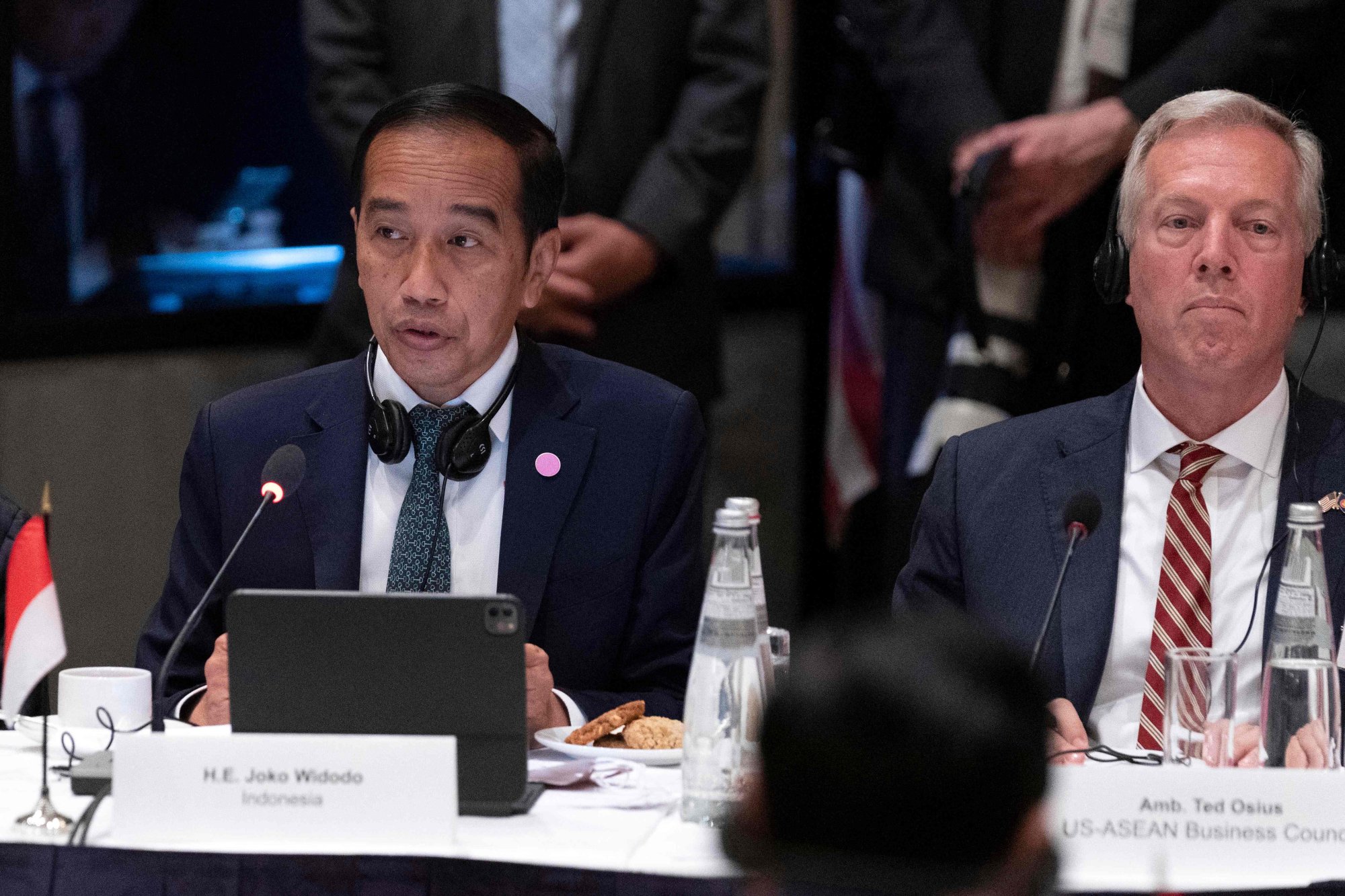
US offers US$150 million development package to Asean countries on first day of summit
- The funding from Washington will go toward initiatives including maritime cooperation and clean energy
- The Biden administration says the largest distribution would be US$60 million to ‘promote a free and open Indo-Pacific’
The United States has offered more than US$150 million to Asean countries for initiatives including maritime cooperation and clean energy as Washington seeks to advance its position in the wider geopolitical competition with China.
The announcement was made on Thursday as the US-Association of Southeast Asian Nations summit began in Washington, where US President Joe Biden is hosting his counterparts from the 10-member bloc.
The Biden administration said the largest distribution would be US$60 million to “promote a free and open Indo-Pacific” – a phrase Washington has used to assert maritime rights, including military exercises, in a region where China and at least four Asean members have overlapping sovereignty claims in the South China Sea.
The money will allow the United States Coast Guard to assign more resources to the region for training and security cooperation, the White House announcement said. The US Coast Guard will also send an attaché to the US mission to Asean, and work with the State Department on new initiatives to fight illegal fishing activities.

Ali Wyne, an analyst on US-China relations at the Eurasia Group, said Washington’s efforts to invest heavily on maritime issues was a natural way to engage the group.
“With Asean member countries such as Malaysia and Vietnam voicing growing concerns over China’s claims and activities in the South China Sea, increasing funding for maritime security cooperation is a natural way for Washington to strengthen ties with them,” he said.
Another US$6 million will be used to support digital innovation, strengthen digital economy rule-making, and the adoption of global standards in artificial intelligence.
The US Agency for International Development will be given US$10 million to fight Covid-19 and airborne diseases in Southeast Asia. The White House also said it would provide funding to help Asean members procure up to US$2 billion for clean energy development.
The good, the bad and the ugly: three scenarios for the South China Sea
The announcement also said there would be new air, land and maritime transportation programmes for regional connectivity and promoting resilient infrastructure, although no specifics were provided.
Asean plays a key role in Biden’s Indo-Pacific strategy, which stresses building alliances, military deterrence and a stronger presence in Southeast Asia to counter China’s growing regional and global footprint.
“We are not asking countries to make a choice between the US and China,” a senior administration official said before the summit began. “We want to expand areas of cooperation … we need to be responsive to the desires of countries in the region.”

The official said there was “some overlap” in these new initiatives and the Indo-Pacific Economic Framework, Biden’s strategy to encourage cooperation and set standards with his Asean partners in areas including trade, the supply chain, infrastructure, decarbonisation and anti-corruption efforts.
Beijing is keeping a close eye on the two-day summit, with foreign ministry spokesman Zhao Lijian warning the US not to “damage” regional peace and unity.
“As a country that is located outside of the region, the US should play a constructive role in regional peace instead of damaging stability and unity,” Zhao said during a press briefing.
“The US should not use cooperation as a cover-up for pressuring others to pick sides, or play with fire on issues concerning China’s core interests.”

